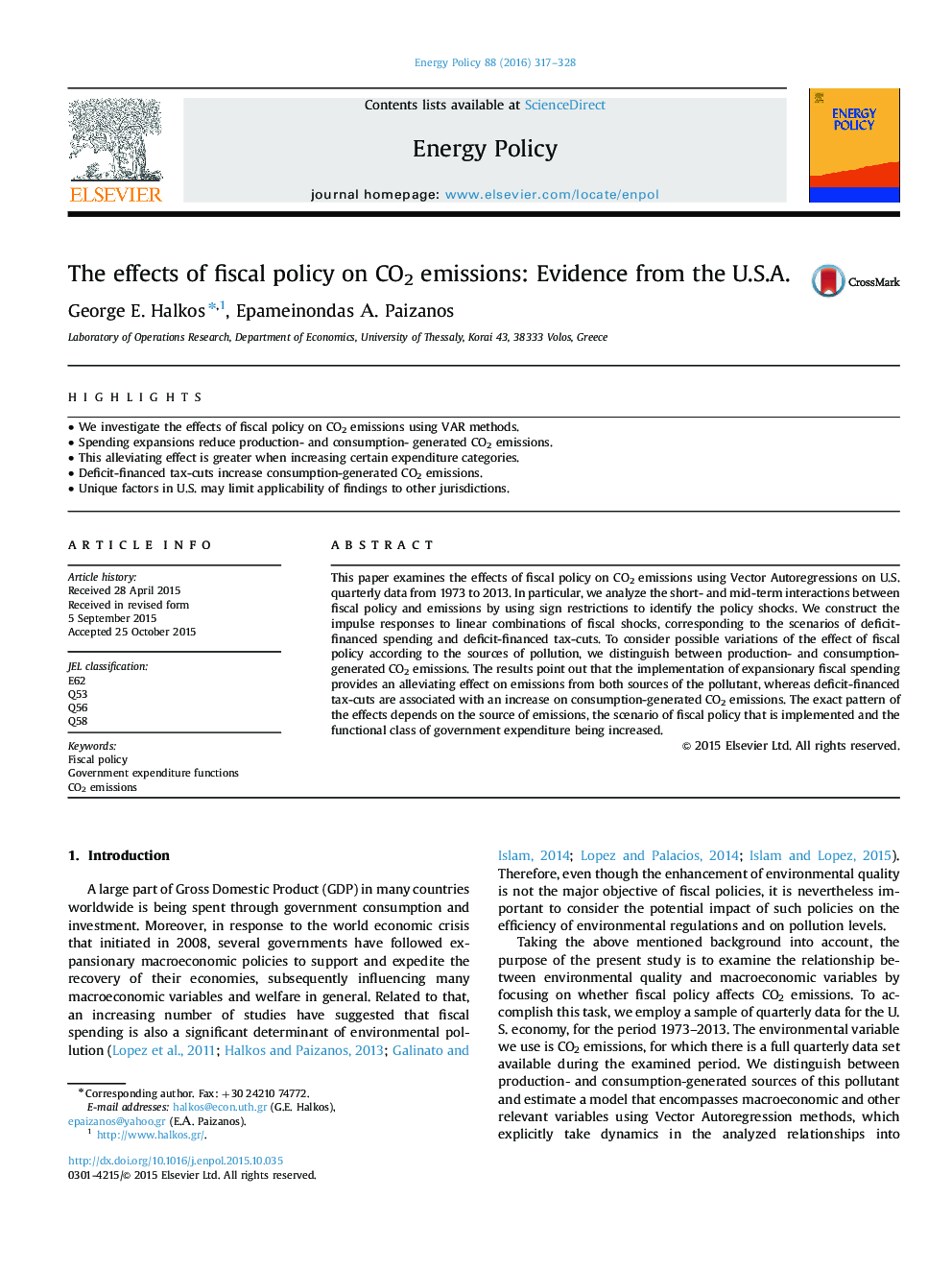| Article ID | Journal | Published Year | Pages | File Type |
|---|---|---|---|---|
| 7400473 | Energy Policy | 2016 | 12 Pages |
Abstract
This paper examines the effects of fiscal policy on CO2 emissions using Vector Autoregressions on U.S. quarterly data from 1973 to 2013. In particular, we analyze the short- and mid-term interactions between fiscal policy and emissions by using sign restrictions to identify the policy shocks. We construct the impulse responses to linear combinations of fiscal shocks, corresponding to the scenarios of deficit-financed spending and deficit-financed tax-cuts. To consider possible variations of the effect of fiscal policy according to the sources of pollution, we distinguish between production- and consumption- generated CO2 emissions. The results point out that the implementation of expansionary fiscal spending provides an alleviating effect on emissions from both sources of the pollutant, whereas deficit-financed tax-cuts are associated with an increase on consumption-generated CO2 emissions. The exact pattern of the effects depends on the source of emissions, the scenario of fiscal policy that is implemented and the functional class of government expenditure being increased.
Related Topics
Physical Sciences and Engineering
Energy
Energy Engineering and Power Technology
Authors
George E. Halkos, Epameinondas Î. Paizanos,
